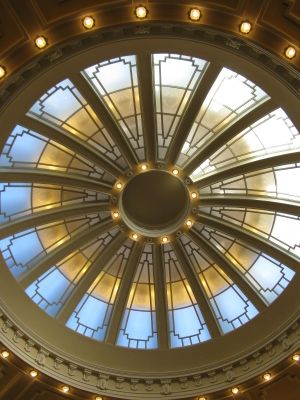Senate passes amended version of controversial building-codes bill
The Senate has voted 26-7 to pass an amended version of HB 547, the controversial bill to forbid local communities from amending or updating building codes beyond those adopted by a state board. Sen. Jim Patrick, R-Twin Falls, said the bill is “a big change from the original bill,” due to all parties coming to the table, from the Idaho associations of cities and counties, to building contractors groups, to the state association of building officials. “So a poor bill can become a good bill, and this is one of them,” Patrick said.
Sen. Jim Guthrie, R-McCammon, said, “Neither party got everything they wanted, but they were generally satisfied with the solution.”
The new version of the bill says codes now in place in Idaho cities can stay and be grandfathered in, but the bill also includes an emergency clause, making it effective immediately upon being signed into law. The bill now has an exception to its ban on local amendments to building codes, saying local communities can amend residential or energy codes to account for local concerns such as snow loads, seismic, geologic and wind concerns when “they find that good cause for building or life safety exists” and that the amendment is “reasonably necessary.”
Sen. Maryanne Jordan, D-Boise, said, “Folks came to the table on amendments that were designed to be better than a really bad bill that we were originally looking at.”
The bill was pushed by a southwestern Idaho building contractors group that objected to code amendments adopted by the city of Boise.
“This bill was generated by a lack of agreement on the part of a few,” Jordan said. “It’s one of those preemption bills that I think we see all too often in this body. … I don’t feel that it’s our best day to continually remove tools from jurisdictions all across the state because a few people in one jurisdiction were unhappy with one decision.”
Sen. Michelle Stennett, D-Boise, said, “My emails haven’t stopped, and none of my communities agree with this bill.”
Guthrie urged support for the compromise bill, saying local communities’ amendments to building codes have “been onerous to builders, provided inconsistency in the codes.”
The bill now needs to go back to the House for possible concurrence in the Senate amendments.

